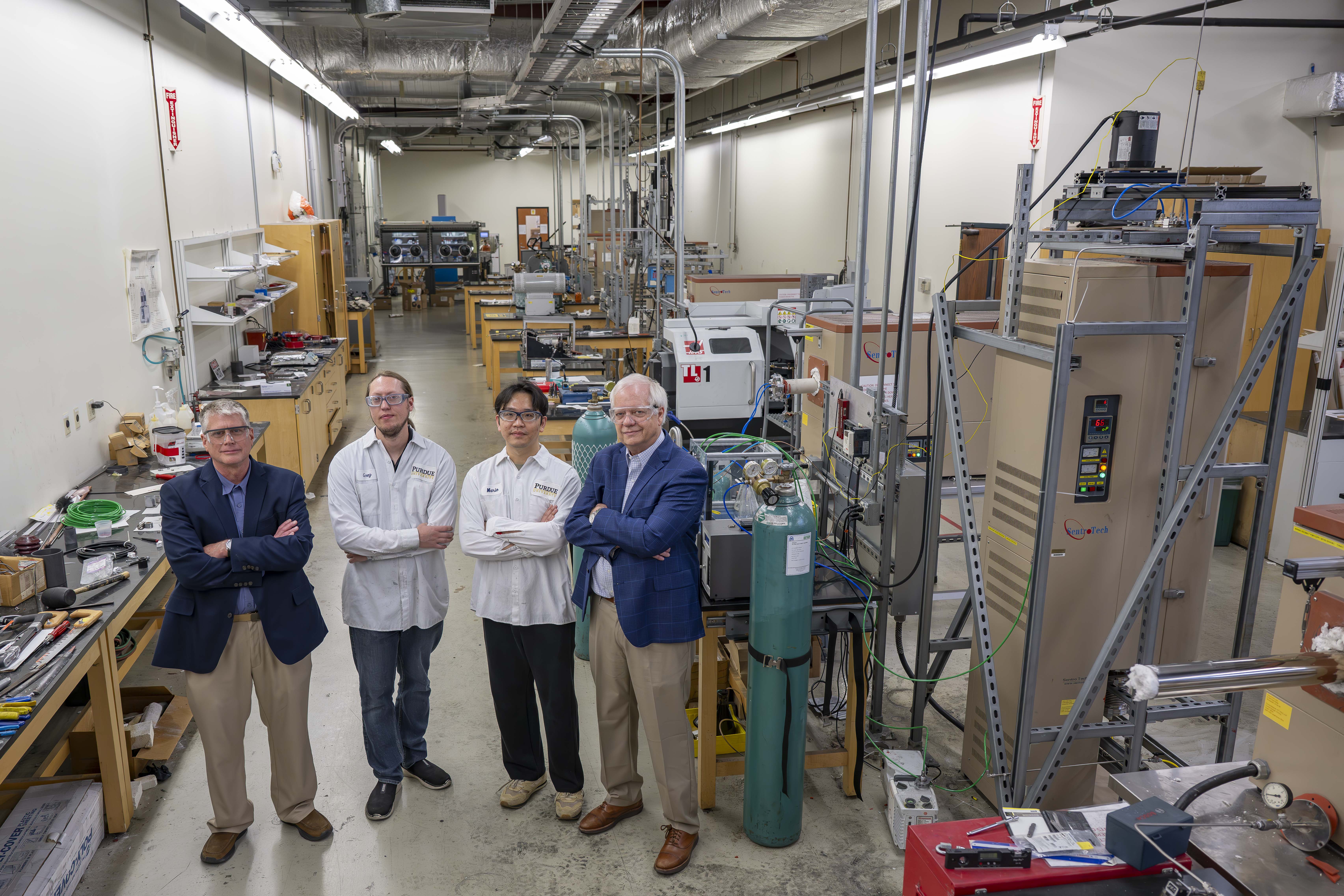MSE research team earns Purdue Engineering's Faculty Excellence Award for Impact on Industry
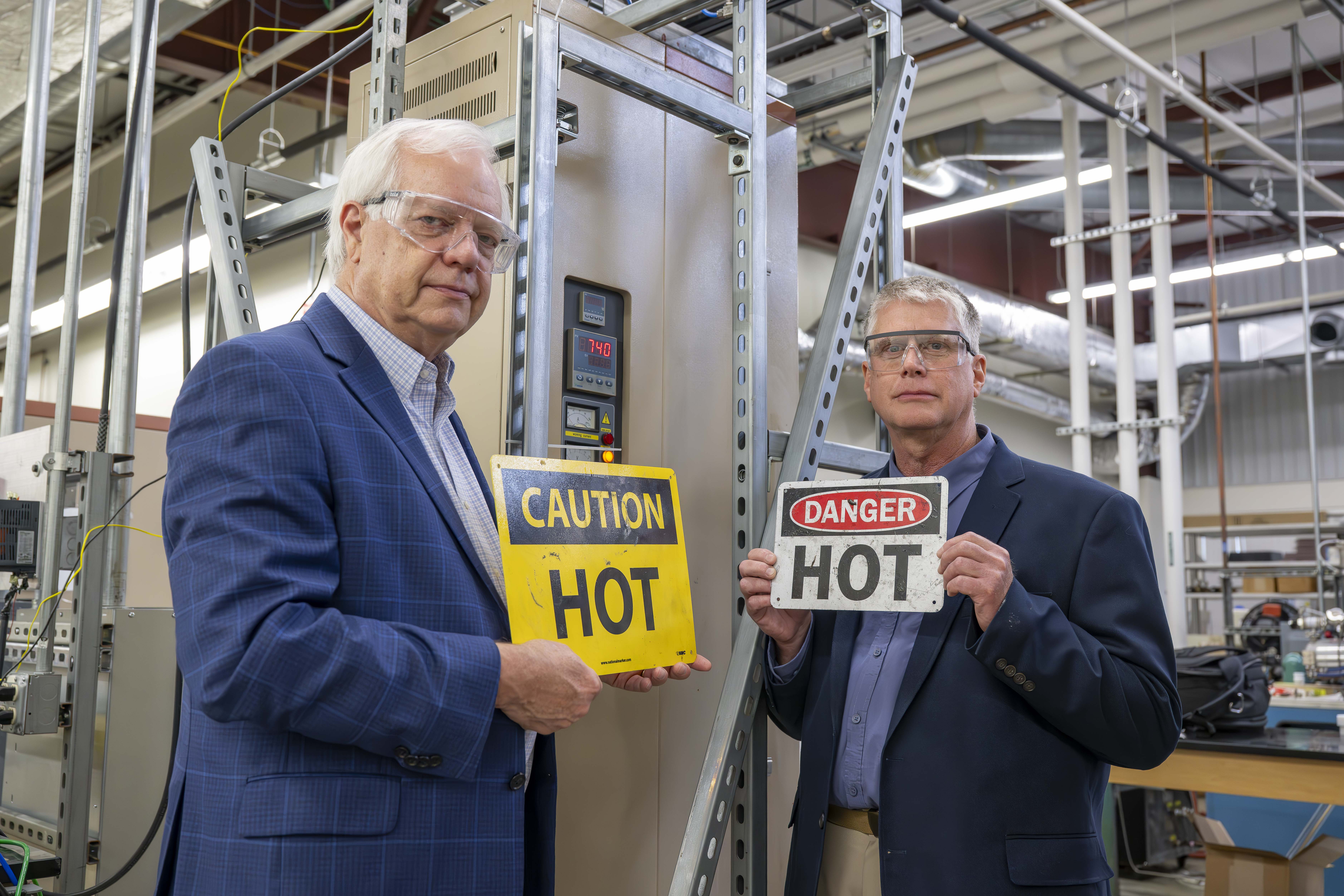
Cummins to roll out Purdue-developed process later this year
Cummins, Inc. is set to launch the first-ever commercial production line utilizing a salt-free oil bath for the austempering of steel. This process, which is a sustainable and cost-efficient means of producing toughened, high-performance steel, was developed by a team of five researchers in the School of Materials Engineering at Purdue University in close collaboration with Cummins.
For the development of what are being called “game-changing technologies with significant translational impact on the heat-treating industry,” the Purdue team will receive the College of Engineering’s 2025 Faculty Excellence Award for Impact on Industry.
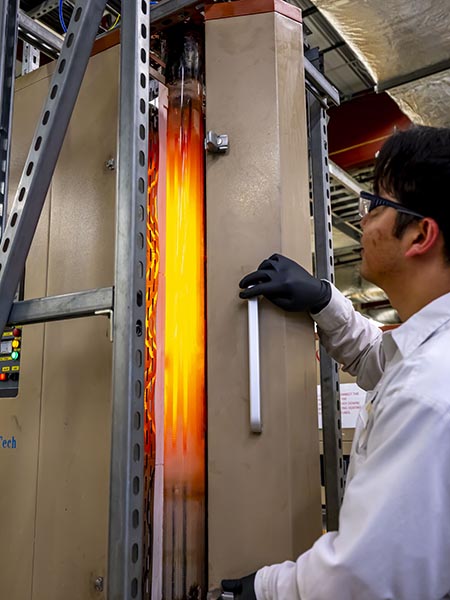
Research team
The research team includes associate professors Michael Titus and David Johnson, professors Matthew Krane and Jeffrey Youngblood, and Reilly Professor of Materials Engineering Kenneth Sandhage. Their work was conducted in tandem with a group of students through the Purdue Heat Treating Consortium (PHTC), which comprises 13 industry members and is focused on pre-competitive research of high industrial relevance.
“This successful effort is a great example of what can be accomplished when industrial partners and Purdue faculty, students, and staff combine their unique expertise, talents, and capabilities to address challenging technological problems. By applying fundamental understanding of the influences of thermal processing on the microstructure and properties of steel, and by employing a carefully-designed furnace system at Purdue to learn how to tailor such thermal processing using various screened candidate oils as cost-effective and sustainable quench media (instead of a conventional molten salt), this PHTC effort has provided a critical proof-of-concept demonstration of oil-based austempering to help Cummins move forward with a new production capability for advanced manufacturing of steel parts,” said Sandhage.
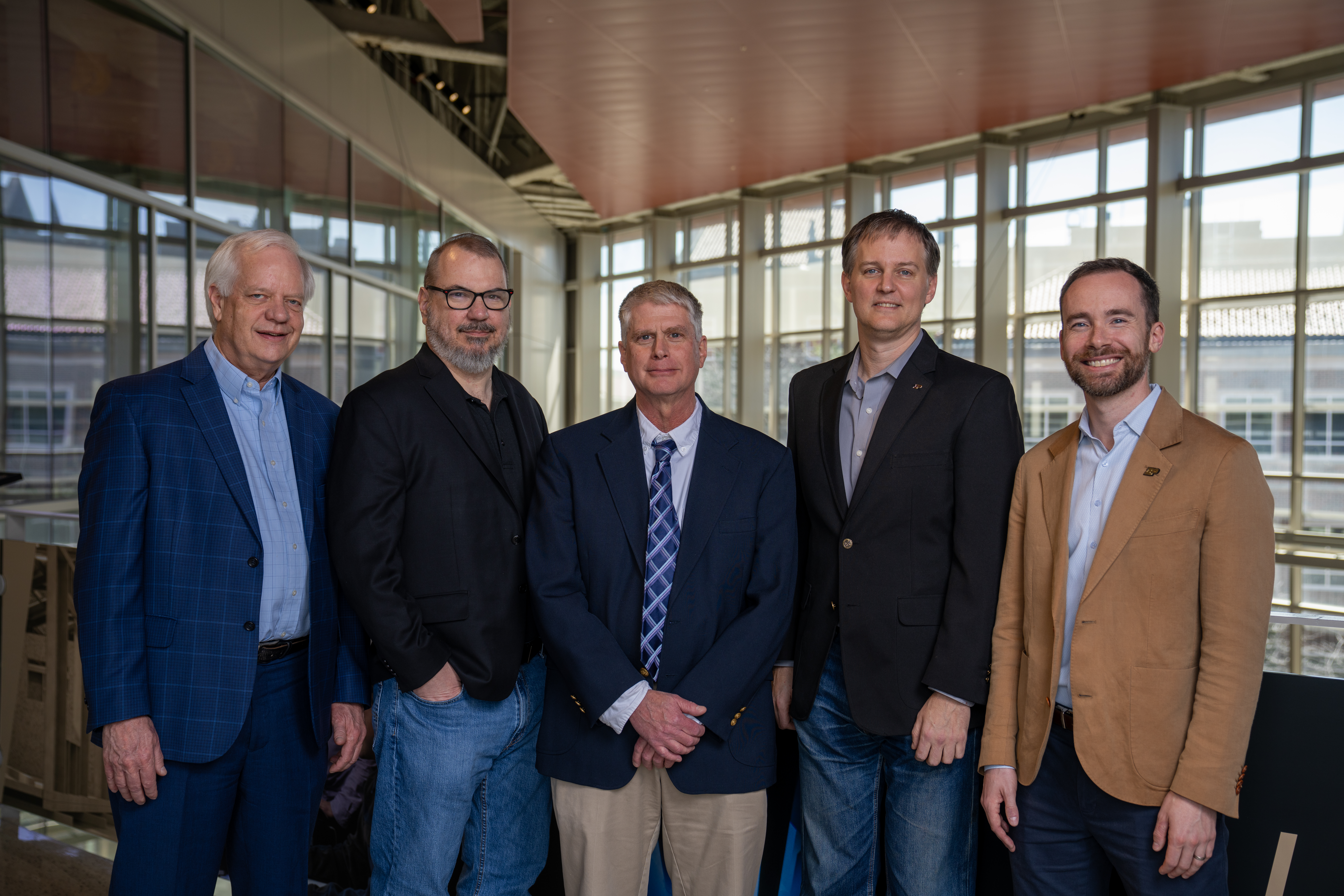
Industry collaboration
Historically, bainitic hardening—commonly known as austempering—relies on molten salt as a quenching medium. This method poses numerous challenges, including quench-speed inconsistencies, surface corrosion and decarburization of the steel, and a salt residue that must be removed to restore surface functionality. The salt is considered a hazardous material when disposed, causing significant environmental concerns.
The oil-based process developed at Purdue, on the other hand, removes corrosive salt from the equation. The method is more consistent, efficient, and versatile for additional heat-treating processes while leading to tougher steels. The plant-based oil used in this process also offers more environmentally friendly recycling options.
All of these factors combined for significant cost savings, while at the same time improving product performance and durability. Cummins expects to roll out the new production line later this year, starting with a single component for a new application and anticipates “transformational benefits” in the years to come as this technology is exploited across the company's Components Business product lines.
“This technology, developed through the PHTC industrial/academia partnership, will enable Cummins and other members of the consortium to produce stronger, tougher, lower-cost parts than can be obtained through conventional martensitic quench hardening, while avoiding the previously discussed issues with conventional salt-bath austempering,” said Steve Ferdon, director of materials science and engineering at Cummins.
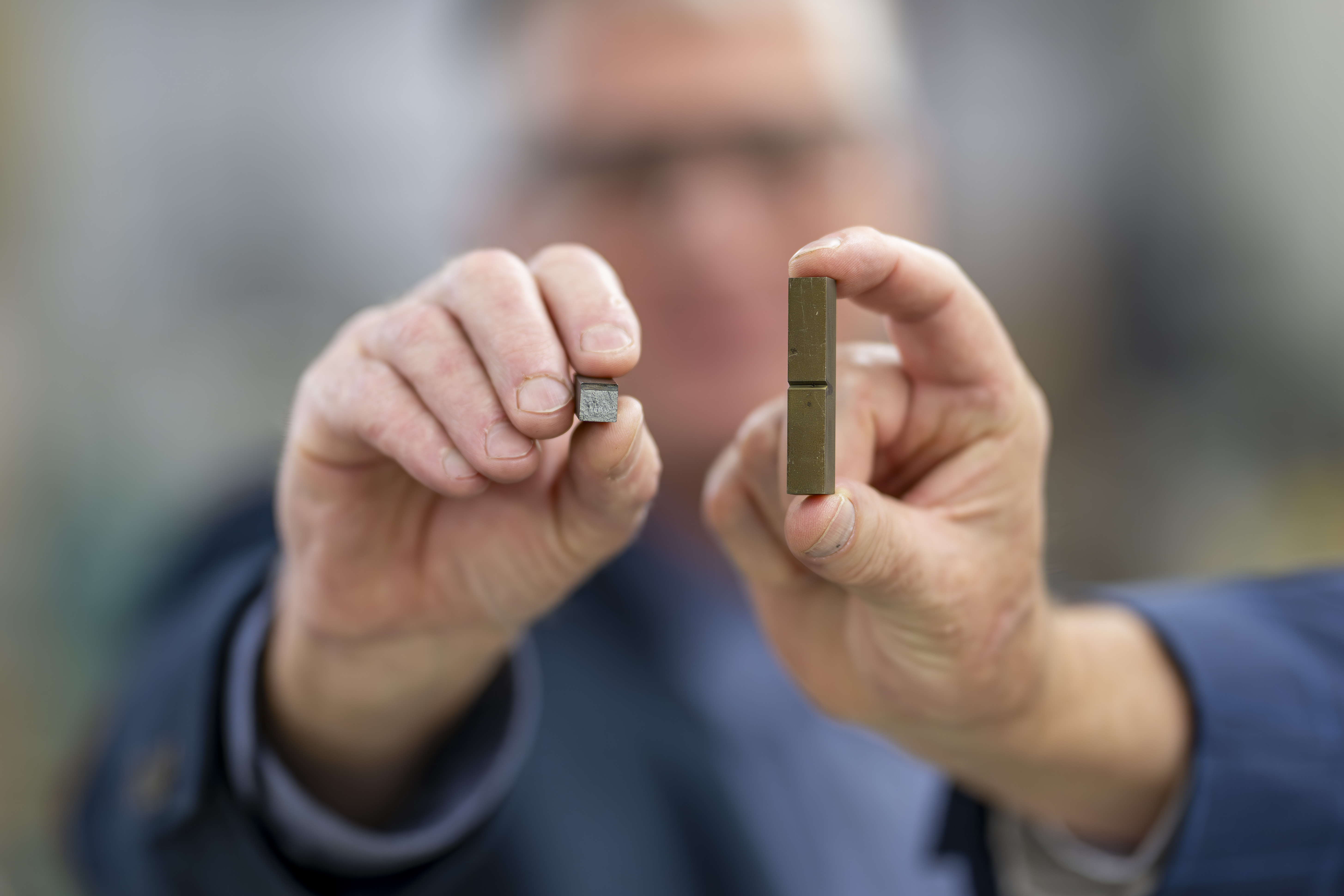
Become a partner
Lia Stanciu, interim head of the School of Materials Engineering, commended the team for its immediate impact on industry.
“Their contributions set a new standard for research translation and demonstrate the massive value of university-industry partnerships, by addressing major barriers to the adoption of sustainable austempering technologies,” Stanciu said.
PHTC is seeking more industrial members. Interested industry partners should contact Mark Gruninger, managing director of industrial consortia, mgruninger@purdue.edu, or Michael Titus, technical director of PHTC, titus9@purdue.edu.
